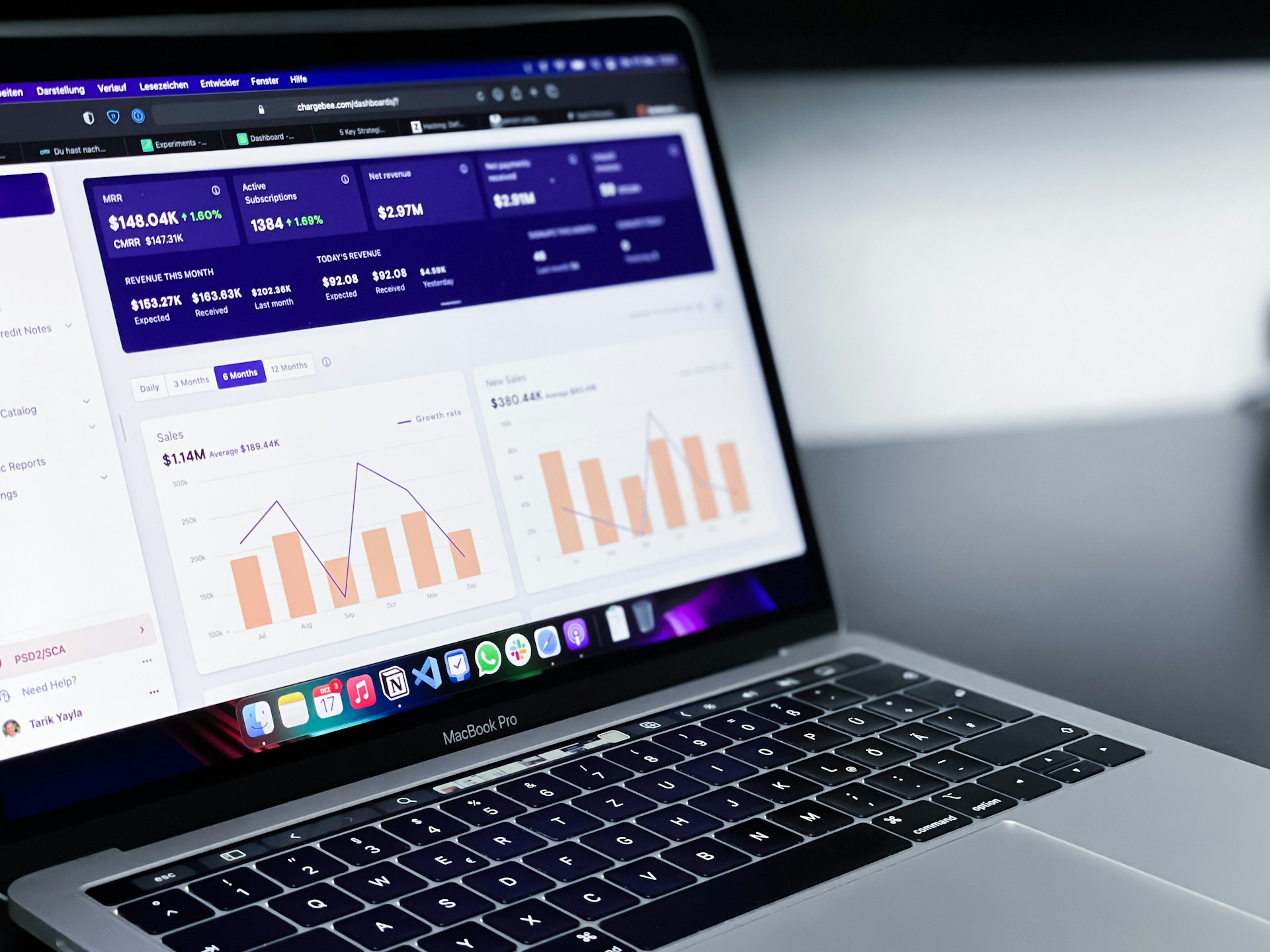In today’s dynamic global market, effective leadership can often be the differentiating factor between a successful and a struggling produce shipping business.
Recognizing the profoundly integral role of an adept leader, this piece offers an in-depth analysis of the characteristics and strategies that can shape a thriving shipping enterprise.
It specifically caters to those in the realm of fresh produce, where quality, time, and efficiency are paramount.
With a spotlight on best practices, underpinning philosophies, and real-life examples, the discourse outlined here lends a broader perspective.
Furthermore, it aspires to equip leaders with the right tools to navigate their businesses through the fluctuating landscapes of this industry.
This understanding can be pivotal in providing added value to your customers, effectively setting your business apart.
Insights Into Effective Leadership In Produce Shipping Business
1. Anticipate shipping trends and adapt.
The produce shipping business, like any other industry, is constantly evolving.
Changes in consumer preferences, advances in technology, and dynamics in global economic landscapes are among the factors that often drive this evolution.
Such changes inherently create new trends and tendencies in the shipping industry.
Effective leaders in the produce shipping business, therefore, have to constantly anticipate these trends and adapt accordingly.
Anticipating shipping trends is a critical aspect of staying ahead in the competitive produce shipping business.
This not only ensures that their businesses stay relevant but also presents opportunities for them to leverage for growth and increased profit margins.
For instance, there is currently a shift towards technologies that minimize human error in shipping, such as automation and AI-controlled processes.
This means that companies that are quicker to adopt such technologies have a competitive advantage over others that lag behind.
In addition, embracing sustainable shipping practices is another mega trend that produce shipping businesses need to adapt to.
With the increasing awareness of climate crisis, there is a global push towards sustainable practices in every industry, including shipping.
Thus, companies that are early adapters to “green” shipping solutions are likely to attract more clients and increase their customer loyalty.
Besides, anticipating shipping trends and adapting to them show clients that your business is proactive and willing to embrace changes for the betterment of service delivery.
This can earn your business a good reputation, increased customer loyalty, and ultimately higher profit margins.
It also shows your commitment to staying current and can position your business as a leader in the produce shipping industry.
To effectively anticipate trends, leaders in the produce shipping business need to constantly stay informed.
This could involve actively participating in industry forums, keeping abreast with shipping news, undertaking periodic training and refreshing courses, and paying attention to research reports on shipping.
The ability to anticipate shipping trends and adapt is, therefore, one of the paramount qualities that an effective leader in the produce shipping business should possess.
2. Invest in Advanced Shipping Technology
In the evolving landscape of the produce shipping business, investing in advanced shipping technology is a strategy that no leader can afford to ignore.
Leaders must recognize the transformative potential of technology in streamlining their operations and increasing efficiency.
Advanced shipping technology such as Automated Guided Vehicles (AGVs) and robotic technologies can significantly reduce the manual labor involved in the shipping process.
These technologies can handle multiple tasks, from picking and packing to loading and unloading, thereby reducing human error and increasing productivity.
Advanced shipping technology can lead to a remarkable increase in your organization’s productivity and efficiency. It significantly reduces the involvement of manual labor and the associated human error.
Moreover, technologies like Real-Time Tracking and Internet of Things (IoT) devices provide complete visibility into the shipping process.
This transparency allows produce shipping businesses to make data-driven decisions and implement real-time changes to enhance operational efficiency.
Leadership must also invest in technologies that improve the quality and safety of the produce during shipping.
Technologies like Refrigeration Monitoring Systems and Humidity Control Devices can help maintain the perfect environment for fresh produce during transit.
Investing in technology not only boosts productivity but also enhances customer satisfaction as clients receive their products in the best quality and on time.
Moreover, advanced shipping technology can provide valuable data and insights to identify inefficiencies in your shipping process and take corrective measures.
This strategic investment can transform the entire outlook of your produce shipping business and give you a competitive edge in the market.
Leadership should involve their teams in the process of adopting and implementing new technologies, thereby instilling confidence and fostering a culture of innovation.
It’s important to remember that investing in advanced shipping technology is not a one-time task.
Research, adaptation, and continuous learning should be a part of the process as technologies evolve over time.
Leadership in produce shipping businesses should not shy away from embracing advanced shipping technology, understanding its potential rewards and being strategic in its application.
3. Maintain efficient communication with clients.
In the dynamic world of the produce shipping business, communication is a vital tool for effective and sustainable leadership.
The most effective leaders understand that consistent, efficient communication with clients is integral to their business model.
When information is relayed promptly and accurately, it not only aids in avoiding misunderstandings but also contributes to building a positive and enduring relationship with clients.
The key to maintaining efficient communication is understanding the specific needs of each client and tailoring communication to effectively address those needs.
While efficiency in communication is critical, leaders should also ensure that their communication channels are always open.
Doing so fosters an environment of trust, enabling clients to feel heard, understood, and valued.
This can be achieved by being available and responding to queries promptly, providing regular updates on shipments, and being proactive in communicating any potential issues or delays.
Notably, efficient communication isn’t solely about conveying information; it’s also about attentive listening and demonstrating empathy towards clients.
Leaders who excel in communication make sure they understand their client’s perspective, concerns, and suggestions and then act accordingly.
Apart from this, client communication can also extend to sharing insights about the industry, economic impacts, and anticipated implications on the shipping process.
Further, regular communication with clients can lead to the unveiling of significant insights, ultimately enabling leaders to make more informed decisions regarding their business.
With advances in technology, leaders now have a plethora of platforms they can utilize for enhancing communication.
Choosing the right platform based on the client’s preference ensures seamless communication and lead to a better client experience.
With shifting trends and an increasing shift to digital platforms, it’s essential for leaders to stay updated and leverage the latest tools to optimize communication.
By maintaining efficient communication with clients, leaders not only build stronger relationships but also set the base for long-term success in the produce shipping business.
Maintaining effective communication with clients as a leader this business is not only beneficial for the immediate customer experience but also for longevity and growth of the business as a whole.
4. Synergize Teamwork and Productivity in the Produce Shipping Business
In the world of produce shipping business, teamwork and productivity go hand in hand.
It is vital to develop synergies between these two aspects to achieve optimal business performance.
Where effective leadership comes into play is in nurturing this synergy and steering teams towards achieving set goals.
As an effective leader, your role is pivotal in marrying teamwork with productivity to create a conducive work environment geared towards business growth.
Leading a team in the produce shipping business means dealing with various complexities that arise from managing perishable goods, strict timelines, and evolving market conditions.
It requires implementing strategies that encourage collective responsibility, effective communication, and mutual respect among team members.
Produce shipping isn’t just about moving goods from one point to another; it’s about doing this efficiently, and that’s where productivity comes in.
A productive team is more likely to meet deadlines, reduce wastage, and guarantee the delivery of fresh produce to the end consumer.
To synergize teamwork and productivity, you must first understand the unique dynamics of your team.
You should know their strengths and weaknesses, their motivations, and how they best work with each other.
It’s through this understanding that you can align their efforts and create a working environment that encourages productivity.
Another key element to synergizing teamwork and productivity is clear and effective communication.
Ensuring your team understands their roles, the tasks at hand, and the overall goals of the business is primordial.
A well-informed team, where everyone knows what is expected of them is more likely to work efficiently towards the achievement of common goals.
Finally, to synergize teamwork and productivity, you need to cultivate a culture of continuous learning and improvement.
This entails providing learning opportunities for skill development, which eventually contributes to increased productivity.
Remember, synergizing teamwork and productivity is not a one-off task – it requires ongoing effort and effective leadership to continually achieve this balance and drive the business forward.
5. Prioritize Sustainable and Ethical Practices
In the ever-competitive world of produce shipping business, embracing and prioritizing sustainable and ethical practices can make a significant difference in how a company is perceived by customers and partners alike.
Sustainability has become a buzzword in all sectors of industry, but its implications for the shipping business are truly profound.
It is not just about environmental consciousness, which indeed is a critical aspect, but also about social responsibility and economic viability.
Leaders in the produce shipping business can set the tone for their organization’s commitment to sustainability.
By instilling a strong ethos of environmental stewardship and ethical conduct, they can influence all aspects of their operation.
Leaders who champion sustainable and ethical practices in the produce shipping business can inspire their teams, promote customer trust, and ultimately drive the success of their organization.
Implementing ecological initiatives such as reducing carbon emissions, minimizing waste, and promoting recycling can demonstrate a company’s commitment to behaving ethically and responsibly.
Investing in sustainable technology not only brings operational efficiencies but also positions the company as a forward-thinking player in the industry.
Equally, leaders must champion ethical practices: fair treatment of employees, engagement in fair trade, and a commitment to transparent business practices.
In doing so, they are not just ticking off a CSR checklist, but are shape a culture that respects the people and the planet.
Sustainable and ethical leadership is a critical determinant of a business’s long-term health and success, given the rising consumer demand for corporates to be socially responsible.
High ethical standards also reduce the risk of legal problems and scandals, which can have devastating consequences for a company’s reputation and profitability.
Finally, a leader’s commitment to ethical and sustainable practices can motivate employees, who often feel more satisfied working for a company that aligns with their personal values.
Leading by example in this way can cultivate a more productive and loyal workforce, further contributing to the company’s bottom line.
In short, prioritizing sustainable and ethical practices is not only the right thing to do, but it is also good for business.
The Bottom Line
Adapting swiftly to accommodate dynamic shipping trends, investing in high-tech solutions, and ensuring smooth communication channels with clients significantly contributes to the success in the logistics industry.
In addition, practicing effective teamwork and promoting productivity within the organization go a long way in building sustainable and profitable operations.
Furthermore, prioritizing eco-friendly practices and upholding ethical standards not only benefits the business, but society as a whole.
These imperative strategies help in creating a robust and resilient logistics model that stands tall in the face of ever-evolving market challenges and customer expectations.




